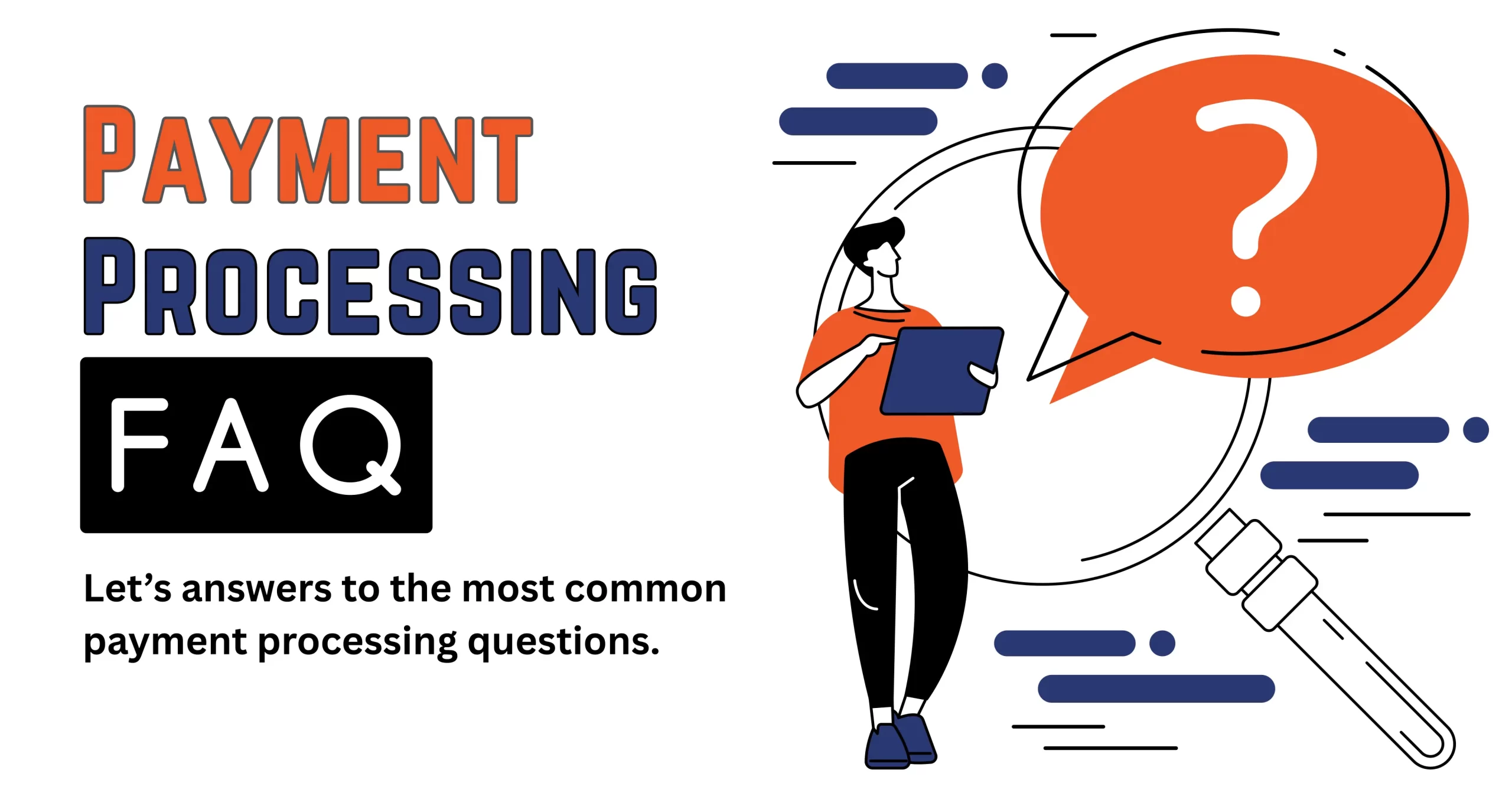
| June 26th, 2025 |
Most Common Payment Processing FAQs for Businesses!
1. What is payment processing?
Payment processing refers to the handling of electronic transactions between customers and businesses. It ensures money moves securely from a buyer’s account to the seller’s bank account.
2. How does payment processing work?
It involves several steps—authorization, authentication, settlement, and funding. When you swipe a card, the processor contacts the bank to approve the payment and completes the transfer behind the scenes.
3. What are the steps in the payment processing cycle?
The main steps are:
- Authorization (checking funds)
- Authentication (verifying identity)
- Clearing (sending transaction details to banks)
- Settlement (moving money to the merchant’s account)
4. What’s the difference between a payment gateway and a payment processor?
A payment gateway collects the customer’s payment data securely (like a virtual cashier), while a processor transmits that data to complete the transaction.
5. Are online payments secure?
Yes, when processed through PCI-compliant systems using encryption, tokenization, and fraud detection.
6. What is PCI compliance in payment processing?
It refers to a set of security standards businesses must follow to accept, process, and store credit card information safely.
7. Can payment processors handle international transactions?
Yes, many modern payment processors support cross-border payments, multi-currency transactions, and localized payment methods.
8. What happens if a payment fails?
The processor notifies both parties, and common reasons include insufficient funds, incorrect details, or network issues.
9. How do I choose a payment processor for my business?
Look for factors like transaction fees, security, integration options, support, and whether they handle your business model (e.g., high-risk, online, or subscription-based).
10. What are the fees involved in payment processing?
Typical fees include a per-transaction fee, monthly charges, chargeback fees, and sometimes setup or termination fees.
11. Which is the best payment processor for small businesses?
It depends on your needs. Stripe, Square, and Paycron are popular for easy integration, transparent pricing, and fast onboarding.
12. Can I accept recurring payments through a processor?
Yes, many processors offer subscription billing or recurring payment options ideal for SaaS and service-based businesses.
13. How long does it take to receive funds?
Typically, 1–3 business days. Some processors offer instant payouts for a small additional fee.
14. Do I need a merchant account for payment processing?
Yes, some processors bundle a merchant account with their service (like Square and Paycron), while others require a separate setup.
15. Can payment processors integrate with my POS or eCommerce platform?
Most modern solutions like Paycron offer API integrations or plug-ins for Shopify, WooCommerce, Magento, and major POS systems.
16. What types of payments can a processor handle?
Most processors handle credit cards, debit cards, ACH transfers, eChecks Payments, mobile wallets, and even cryptocurrency, depending on the provider.
17. What is tokenization in payment processing?
Tokenization replaces sensitive card data with a unique string (a token), keeping information secure during and after a transaction.
18. How do chargebacks work in payment processing?
When a customer disputes a charge, the bank temporarily withdraws funds from the merchant’s account while the issue is reviewed and resolved.
19. Is a payment processor the same as a payment aggregator?
Not quite. Aggregators (like PayPal or Square) group merchants under a single account, while traditional processors offer individual merchant accounts.
20. What is a payment processor’s role in fraud prevention?
They use tools like address verification, online check verification, 3D Secure, and machine learning to detect and block suspicious transactions.
21. Can I switch payment processors without disrupting my business?
Yes, with planning. Choose a provider with seamless migration tools, sandbox testing, and support for your current payment methods.
22. How do I negotiate lower payment processing fees?
Ask for custom pricing based on volume, reduce chargebacks, and avoid unnecessary features to qualify for better rates.
23. What’s the best payment processor for high-risk businesses?
Providers like Paycron and PaymentCloud specialize in high-risk industries and offer tailored support and compliance tools.
24. Can payment processors integrate with accounting software?
Yes, many support integrations with QuickBooks, Xero, and other platforms to simplify reconciliation and cash flow management.
25. How can I reduce payment processing costs?
Choose the right pricing model (interchange-plus is often cheaper), use batch processing, reduce chargebacks, and avoid hidden fees.
